10 Jun Changing how we think about transport for our health and the environment now!
As a nation, we need to change the way we think about transport for our health and the environment. And we need to start now.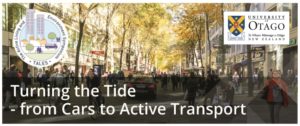
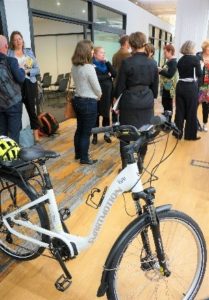 Our reliance on fossil-fuelled transport contributes to 17% of greenhouse gas emissions each year. Walking and cycling present an easy and accessible everyday mode of active transport that can reduce our carbon footprint while also decreasing the low physical activity levels of our population and reduce our risk of developing cardiovascular disease, cancer, Type-2 diabetes and depression and dying prematurely. But it’s not just as simple as getting our bikes out of the garage or leaving the car at home and walking to work. We do need to change our behaviour but the way we design and build our cities and town, and the way we educate, evaluate and regulate active transport nationally needs to change first.
Our reliance on fossil-fuelled transport contributes to 17% of greenhouse gas emissions each year. Walking and cycling present an easy and accessible everyday mode of active transport that can reduce our carbon footprint while also decreasing the low physical activity levels of our population and reduce our risk of developing cardiovascular disease, cancer, Type-2 diabetes and depression and dying prematurely. But it’s not just as simple as getting our bikes out of the garage or leaving the car at home and walking to work. We do need to change our behaviour but the way we design and build our cities and town, and the way we educate, evaluate and regulate active transport nationally needs to change first.
The “Turning the Tide’ report was launched in Wellington on 29 April 2019 to provide strategic level recommendations and associated actions to guide central and local government, public health units and regional sports trusts in New Zealand in decision making to improve the levels of active transport over the next 30 years. The report also aims to promote active transport nationally and start a nation-wide discussion to address the issues.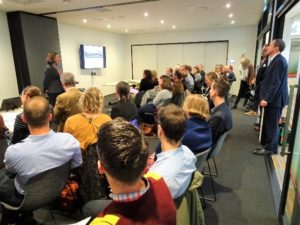
Due to its multi-sectoral framework focusing on four key areas for policy recommendations the report has facilitated engagement across the sectors of health, transport, infrastructure, environment and sustainability leading to cross-sector discussions and feedback. Since its launch the “Turning the Tide” report has been presented at eight meetings with stakeholders throughout New Zealand including Wellington, Christchurch, Auckland and Dunedin reaching over 190 stakeholders across the country within a month of its release. The recommendations of this report were also presented at the Developing New Zealand Conference in Wellington in May 2019. As of May 2019, the report has also been broadcasted nationwide in over 25 media articles, including 4 radio interviews ensuring a wider audience has been reached.
Links to the media articles are available here
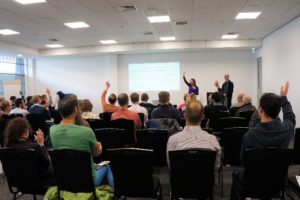
Stakeholder feedback received to date has been very positive and clearly calls for central and local government support, the densification of urban areas, reductions in speed limits, car-free zones in CBDs, improved pedestrian and cycling infrastructure, cheaper, accessible and reliable public transport and the normalisation of active travel modes in New Zealand.
Discussions need to continue in local and national organisations, across sectors and in the wider community to ensure we know the facts, understand the need for and importance of change and start to do something about it.
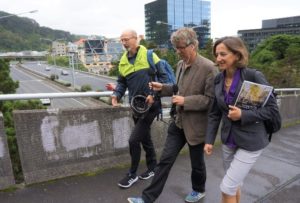
For more information on the “Turning the Tide” report visit the Active Living Laboratory website.
This article supplied by Kimberley King, MSc and Sandra Mandic, PhD; Active Living Laboratory, University of Otago, Dunedin, New Zealand Contact by email here

